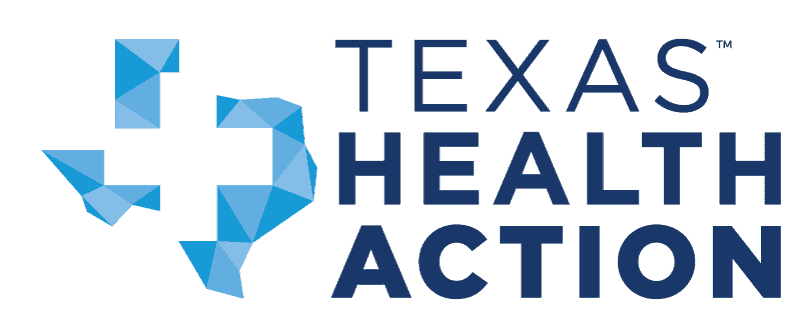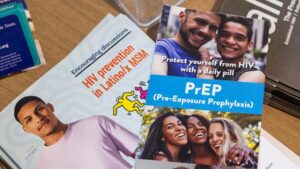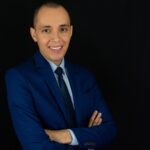February 15, 2023
Dr. John Carlo said it was too good to be true.
For a decade, health clinics like the four he runs in the Dallas area had come to rely on Gilead Science’s patient assistance program to help pay for their HIV and AIDS services. But last year, the pharmaceutical giant made a decision that blocked funds for services unrelated to the direct purchase of the HIV prevention drugs known as PrEP.
The decision was made in an effort to keep the free drug program alive, Gilead said, but clinics say it cut them off from valuable revenue that helped them keep the disease at bay.
The Dallas Morning News spoke with leaders from three North Texas clinics who said Gilead’s decision has already cost them close to $20 million — funds they had used to get and keep at-risk patients on PrEP.
Prism Health North Texas saw a $3.5 million drop in revenue last year, Carlo said. They’ve had to limit new openings for uninsured patients seeking HIV prevention medications and, beginning April 1, will ask them to pay for services the clinics used to cover, like laboratory tests and office visits.
“The loss is pretty tremendous,” said Carlo, who worries about getting the lifesaving medication to those at greatest risk. “We’re going to lose people who are going to need it the most.”
The revenue loss hit states like Texas, where there are more uninsured people who are at the highest risk, especially hard. HIV prevention advocates worry that if clinics treat fewer patients, this could mean more unprotected people in the population, and, therefore, faster HIV spread.
Some clinic leaders said they knew it could be risky to rely on Gilead’s free drug program to help fund services. But the company’s decision to cut off the revenue stream altogether came as a huge shock to many — and one without an easy fix.
Gilead said its patient assistance program was never meant to help clinics pay for services, and that changing its reimbursement policy will ensure the company will be able to keep providing its lifesaving HIV prevention drugs to needy patients for free. A company spokesperson called it a “fair and sustainable approach” and said at $250 million in charitable contributions and grants, Gilead is the “largest private funder of HIV programs in the U.S.”
“Our program update has put a spotlight on the inequitable distribution of federal and state resources for HIV treatment and prevention services across the U.S. — resulting in organizations needing to rely on a patchwork approach of government programs, industry initiatives and charitable endeavors to support access to essential HIV wraparound services,” the spokesperson said.
Carlo echoed this sentiment. He said he believes the government and private sector should have stepped in earlier to fill in the funding gap, and said the fallout clinics are experiencing exposes yet another crack in the broken American healthcare system.
“It was a ‘too good to be true’ phenomenon,” Carlo said. “Once Gilead stepped away, the vacuum needed to be filled in.”
Policy change
When taken as prescribed, PrEP can reduce the risk of getting HIV from sex by about 99% and from intravenous drug use by about 74%, according to the Centers for Disease Control. But usage of PrEP, which stands for pre-exposure prophylaxis, has remained low.
Cost has been a huge reason. Before generics with list prices as low as $30 a month came on the market in 2021, the cost for a month’s worth of Gilead’s brand name Truvada topped $1,700.
Gilead’s patient assistance program, called Advancing Access, was established to provide the company’s drugs for free to certain uninsured patients. It’s served more than a quarter of a million to date, Gilead says.
Advancing Access was also providing some HIV and AIDS programs with an added benefit: a huge cash windfall.
Certain health programs that serve low income and uninsured patients are eligible to purchase discounted drug prices under a federal program called 340B. Pharmacies would dispense PrEP to eligible patients from these HIV clinics at the discounted price, but Gilead would reimburse at the retail cost of the drug. The difference between the retail cost and discounted price, referred to as “the 340B spread,” would get passed along to the clinic.
Put another way, some clinics were bringing in upwards of $1,200 per Advancing Access patient per month under the previous reimbursement model.
This continued for the better part of decade, during which time clinics used the spread to pay for required services for PrEP patients, like quarterly blood screenings and STI testing. The millions it added to their ledgers also helped them expand advocacy and outreach efforts, which helped overcome stigma and get more patients on Gilead’s HIV prevention drugs.
But in April 2021, Gilead announced it would soon begin reimbursing pharmacies for the actual amount paid for the drugs — eliminating the so-called spread. The change went into effect in January 2022.
Gilead said the decision to change its reimbursement policy was years in the making and came after some clinics were exposed for misusing the funding. In 2020, Gilead sued 50 health care entities in Florida for recruiting homeless and low-income people into free PrEP programs. In many cases, instead of treating the patients, Gilead said the entities pocketed the reimbursement and sold the drugs on the black market. Gilead netted $33 million in a settlement with one clinic last June.
“The egregious nature of this fraud reinforced the importance of the updates to the reimbursement model to remove any incentive to this type of abuse, maintain easy accessibility for providers and program participants and protect the long-term viability of our free drug program,” Gilead said through a spokesperson.
The company said it intends to continue working with advocates to “overcome the remaining barriers to HIV prevention, care and treatment” especially in the hardest hit parts of the nation.
The spokesperson declined to provide a dollar figure for how much the company recouped in its first year after the reimbursement policy change.
Many clinic leaders feel Gilead’s decision left them high and dry.
“Rightly or wrongly, that was the funding source under which all this happened,” said Tim Horn, who oversees the HIV and AIDS policy team at NASTAD, an national organization for public health officials who administer HIV and hepatitis programs. “Even though this was a business decision, it pulled the rug from under all these programs.”
Effects and Fixes
Dallas had the second-highest number of new HIV cases in Texas in 2020. But fewer than one in five county residents at risk for HIV were on PrEP that year, CDC data show.
Clinics, like the four that Texas Health Action runs across the state, have helped increase PrEP usage among the most at-risk populations.
CEO Christopher Hamilton said they lost $9.2 million last year, about 53% of their revenue, predominantly due to Gilead’s decision regarding PrEP reimbursement. They intend to keep providing their services for free and are seeking donations, “feverishly” applying for more grants and tapping their rainy day fund.
“We knew this was going to happen and we saved for the day, we just didn’t know when it would be,” Hamilton said.
DeeJay Johannessen of the HELP Center in Arlington said they also anticipated the Gilead decision in planning their budget but still saw about a 40% drop in revenue. They too haven’t made any changes in services, but worry about other clinics that are “teetering.”
Johannessen worries the Gilead decision will further hike the barrier to entry for at risk populations. While HIV rates are highest among Black and Latino men, PrEP usage is far higher in the white community.
“With this change, it has made the most at risk individuals more at risk,” he said.
Carlo, Hamilton and Johanessen enrolled as many uninsured patients as possible on Affordable Care Act plans and Medicaid but still were left with hundreds who were ineligible.
Texas hasn’t expanded Medicaid utilizing federal funds resulting from the Affordable Care Act, and it has the largest uninsured rate in the country.
UT Southwestern is planning on conducting a PrEP needs assessment study. But the total dollar impact on HIV and AIDS programs across the region may remain a mystery.
“We know there is significant funding loss that will result from this,” said Dallas County Health Director Philip Huang, who said there is a collective responsibility to fix the problem: “This impacts all of us.”
Who’s responsible?
For weeks, advocates have protested outside of Gilead CEO’s Dan O’Day’s home in the San Francisco bay area.
David Poole with the AIDS Healthcare Foundation worked at the company for eight years and helped organize the protests. He believes Gilead’s leaders “lost their social conscience.”
Poole’s foundation lost $30 million from the Gilead reimbursement policy change. But as a global organization with a massive budget, he said they were able to mitigate any real damage. He worries about local clinics.
“We will continue to hammer at Gilead and other manufacturers that we feel like aren’t making good policy around pricing decisions,” said Poole.
He says the government must step in and help. Horn agreed. The solution is finding “a truly sustainable funding source,” he said.
Carlo said the Biden administration should have taken their pleas more seriously and acted as a mediator between advocates, providers and Gilead to discuss the change, and then offer funding to bridge the gap in the company’s wake.
“They really just stood back and said this just wasn’t their responsibility,” he said.
Representatives with the White House and federal health agency did not respond to requests for comment.
Looming in the background are calls for a nationwide federally-funded PrEP program, known as PrEP4All. But for now, clinics are left to find private funders, grants or other benefactors to keep their doors open.
Jeremiah Johnson, who represents PrEP4All, says HIV prevention is a bipartisan issue worth all of our attention.
“This is a priority for everyone in America.”
Lauren McGaughy. Lauren is an investigative reporter based in Austin who focuses on gender, sexuality and politics. Before joining the investigative team, she covered Texas politics for The Houston Chronicle and Louisiana politics for The New Orleans Times-Picayune. She loves cats, cemeteries and comic books, and cooks a mean steak.



